
Be Holy
02-23-2020Weekly ReflectionFather Prince RajaThe scripture readings give us a goal today. 1st reading tells: "Be holy, for I, the LORD, your God, am holy". 2nd reading asks us: Do you not know that you are the temple of God, and that the Spirit of God dwells in you?" And in the gospel Jesus tells us: "So be perfect, just as your heavenly Father is perfect. All the readings point to one theme, "Universal call to Holiness".
READ MORE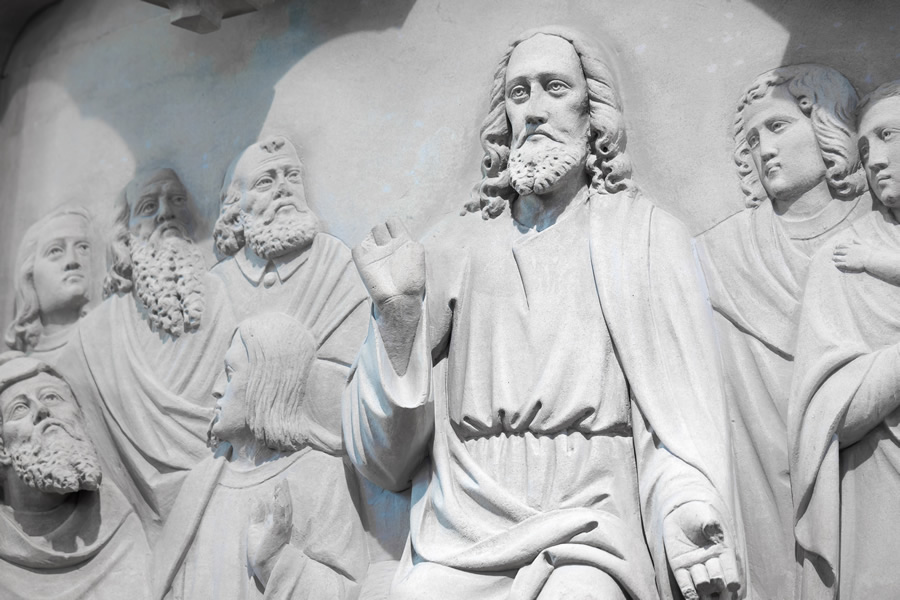
Sermon on the Mount Part II
02-16-2020Weekly ReflectionFather Prince RajaJesus tells in today's gospel: I tell you, unless your righteousness surpasses that of the scribes and Pharisees, you will not enter the kingdom of heaven." This is the time of New Dispensation. Righteousness is not legalism. The word 'righteousness' could be translated as justice, uprightness, virtue, perfection. Matthew is constantly proposing a new and deeper meaning of righteousness. It is not mere conformity to law, but a response to the plan of God. Let us consider just a few examples in the Gospel of Matthew to illustrate the meaning of righteousness which will serve to help us even understand the whole of the Gospel(s).
READ MORE
“You are the salt of the earth and Light of the world.”
02-09-2020Weekly ReflectionFather Prince RajaToday's Readings place an emphasis on Christian faith and call every Christian to be the shining light in the world. In Matthew's Gospel everyone is called by Jesus to be salt and light for others, for the world. Our lives, what we do and the way we do things, should be a source of light and meaning for others. Our actions should be a visible sign for others of God's presence in the world. A Christian has to be outstanding before everyone through his deeds and must enlighten all.
READ MORE
The Presentation of the Lord
02-02-2020Weekly ReflectionFather Prince RajaToday we are celebrating the Feast of the Presentation of the Lord and the feast of Purification of our Lady in the Temple at Jerusalem. Their offering was later to find complete and perfect fulfillment in the mystery of the passion, death and Resurrection of the Lord. The liturgy of the day opens with the blessing to meet Christ and to recognize him "in the breaking of the bread" until he comes again in glory. Today is also the day of consecrated life which necessarily passes through participation in the cross of Christ. This is how it seeks out Mary Most Holy. Hers is the suffering of the heart that is one with the Heart of the Son of God, pierced by love. This feast proclaims Christ as the Light of the World.
READ MORE
"Repent; the Kingdom of God is near."
01-26-2020Weekly ReflectionFather Prince RajaThe gospel text of today from Matthew narrates to us the beginning of the public ministry of Jesus in Capernaum. It was one of the principal towns around the lake of Galilee. It was on the trade route between the southern nations (that included even Egypt) and the northern lands of Syria and even Turkey. The Romans had established a customs office at Capernaum and a garrison managed by a centurion. Traders had to give a large rate of tax for unprocessed goods like grain and olives. Therefore, it is possible that besides the fishing industry Capernaum had a lot of processing units where grains were milled into flours and olives pressed to extract oil. The number of millstones and olive presses, lying all over Capernaum today, stand as witness to this once flourishing town. It is interesting to note that it is this bubbling town that Jesus chooses as the headquarters for his three-year public ministry.
READ MORE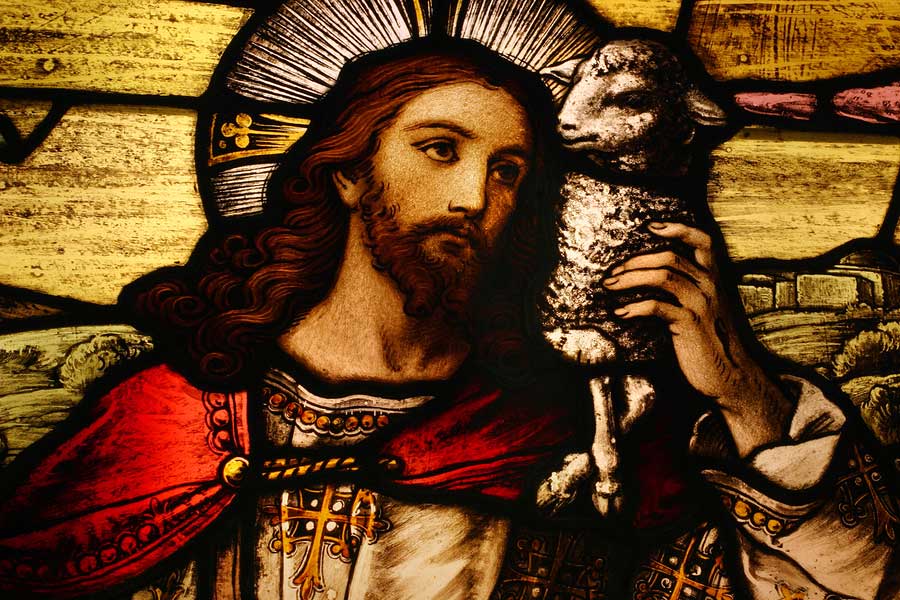
Behold the Lamb of God
01-19-2020Weekly ReflectionFather Prince RajaToday we begin the ordinary season of the year. Today's readings tell us about the identity of Jesus, who he is and what his mission is. We need to know who Jesus is and understand his mission if we want to be his true disciples. A disciple is one who knows and understands the master and follows him closely. Every good disciple is also an apostle who proclaims the good news of the master. In the Gospel of today we have John the Baptist fulfilling his role as a witness and proclaiming to people that Jesus is the Lamb of God who takes away the sins of the world.
READ MORE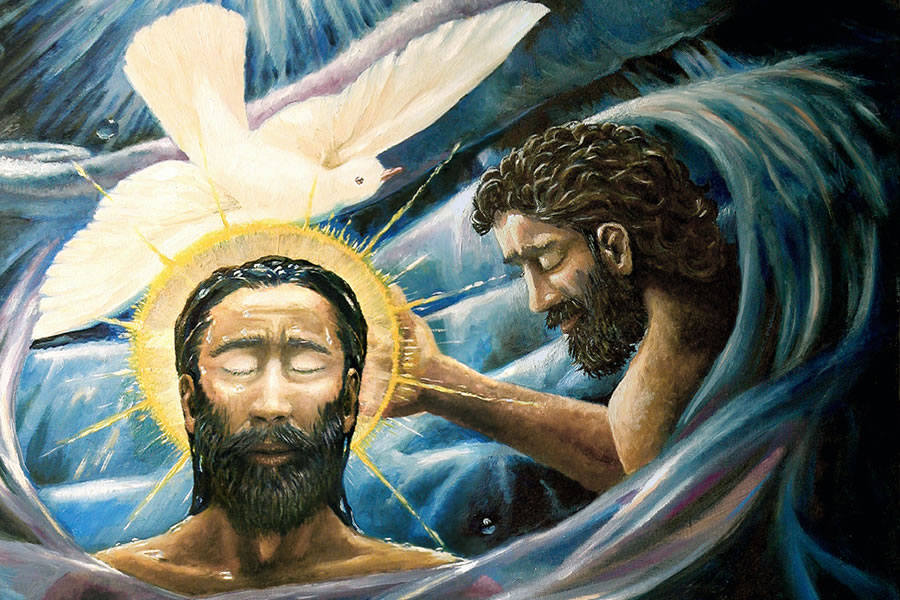
Baptism of the Lord: Called to be Active Participants
01-09-2020Weekly ReflectionFather Prince RajaAs a priest while administering the sacrament of baptism to groups of infants back in India and in USA, I have often noted with much curiosity the variety of infant-reaction to the ceremony of the baptism itself. There are basically three types of behavior as infants react to, the priest, the water, the oil, the white cloth, the light, and the crowd itself that is around during the celebration of the sacrament of baptism:
READ MORE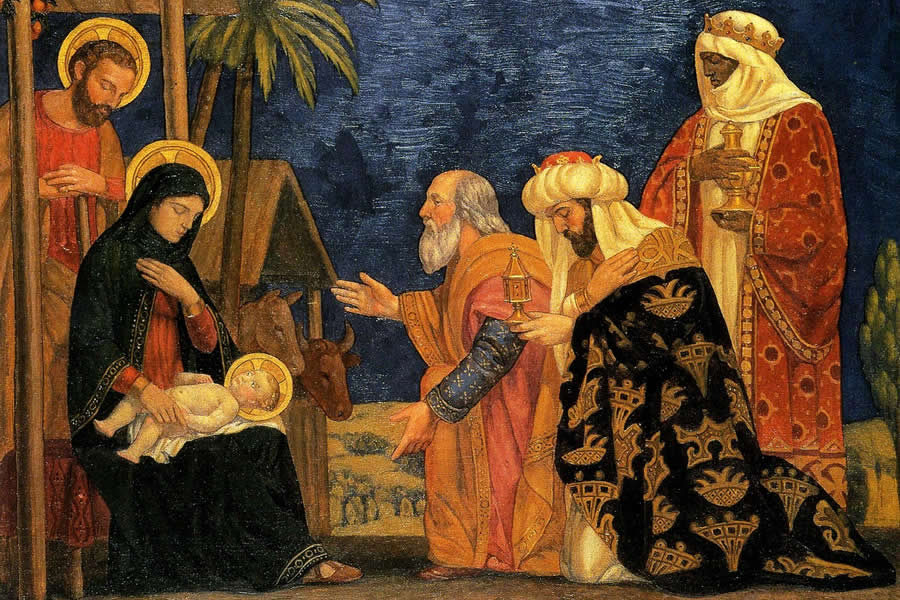
Epiphany: God is made visible!
01-05-2020Weekly ReflectionFather Prince RajaToday’s feast, my dear friends, commemorates thepublic manifestation of God in the person of Jesus. Thestory in today’s Gospel passage tells us of three wise menfrom the East who undertook a tedious journey to beholdthis God-made-visible. This journey is the journey of everyhuman person. It is our journey. The journey towards thefulfilment of our heart’s desire. It is the fulfilment of what StAugustine encapsulated so beautifully, “You have made usfor yourself, Lord, and our hearts are restless till they find rest in you?” It is the story of the human heart as it longs for the Eternal beloved, as St John of the Cross sings, “Wherehave you hidden, Beloved, and left me moaning? You fledlike the stag after wounding me; I went out calling you, butyou were gone.”
READ MORE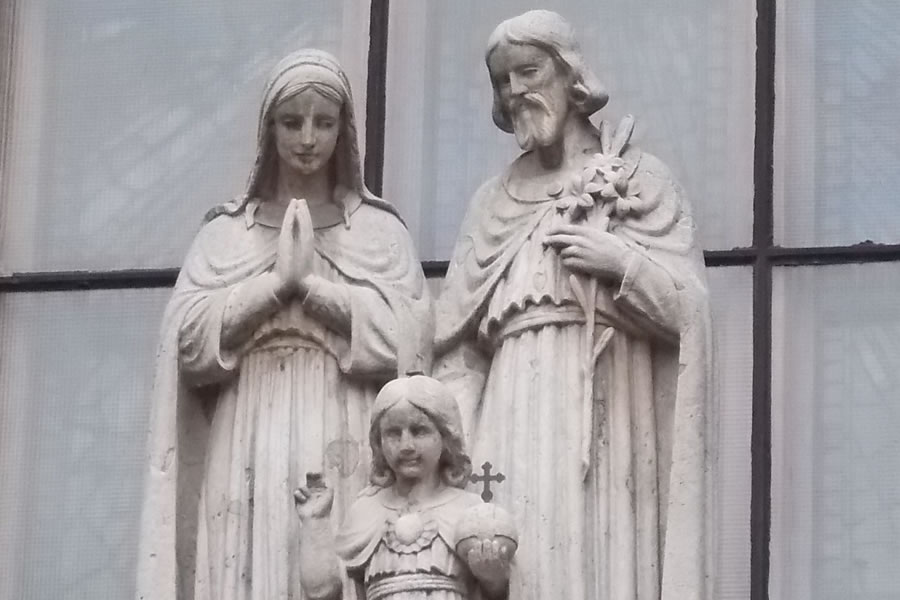
Feast of the Holy Family
12-29-2019Weekly ReflectionFather Prince RajaToday we celebrate the Feast of the Holy Family of Jesus, Mary and Joseph. The feast of the Holy Family is the natural continuation of the Christmas Season. All the scripture readings of today reflect on aspects of family including the duties and blessings that come about as a result of the faithful living of family life. In the creation narrative of the Bible we read that God created man in his image and likeness and placed him in a family. To understand what a family is we must come to know the life of God in the Trinity which is a family. On this feast day the Church presents the Holy Family to us as a model for our own family life. Joseph was the head of the Holy Family and provided for Mary and Jesus with the work of his hands. He was obedient to the angel who told him to take Mary as his wife, what name the child should be given and again he was told to flee to Egypt with the family when there was a threat on their life.
READ MORE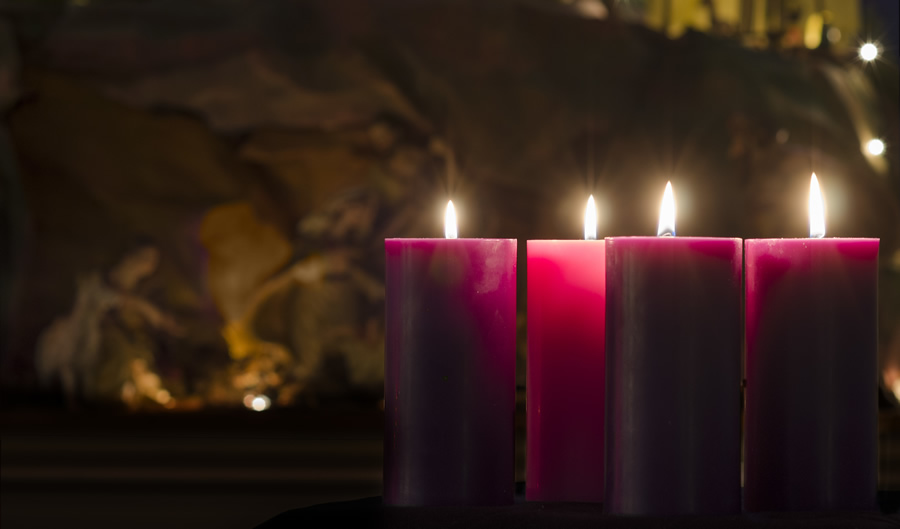
Fourth Week of Advent
12-22-2019Weekly ReflectionFather Prince RajaToday, while celebrating the last Sunday of Advent prior to the Feast of Christmas Day, we can associate with the greatest joy of the Blessed Virgin Mary who awaited the coming of Baby Jesus into the world. Anticipation and preparedness are the watchwords for this Sunday of Advent. Anticipation of the celebration of the birth of our Lord some 2000 years ago and the festivities, gifts, parties and family get-togethers which accompany that celebration. This long awaited king is born in modest circumstances with no earthly power or show. Yet our faith tells us to prepare ourselves for him.
READ MORE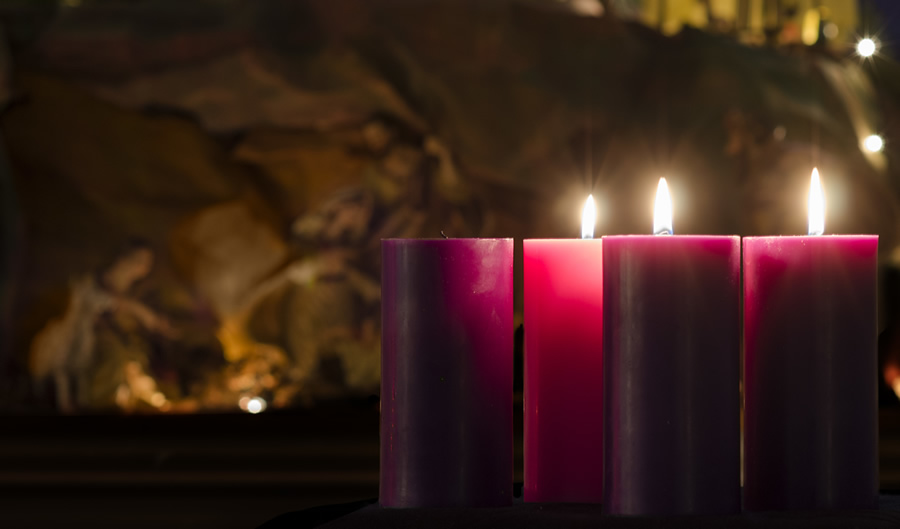
Third Week of Advent
12-15-2019Weekly ReflectionFather Prince RajaIn the liturgical year, we are in the third Sunday of Advent. Advent is a time of waiting. It is a season ofwaiting for the coming of the Lord. Coming of the Lord could be understood at least in three ways: The Lordcame in the form of a human baby two thousand years ago; The Lord comes even today in the Word andSacrament; The Lord will come at the end of times. In the season of Advent, the church invites us to becomeaware of the fact that as pilgrims on the face of the earth we are all waiting!
READ MORE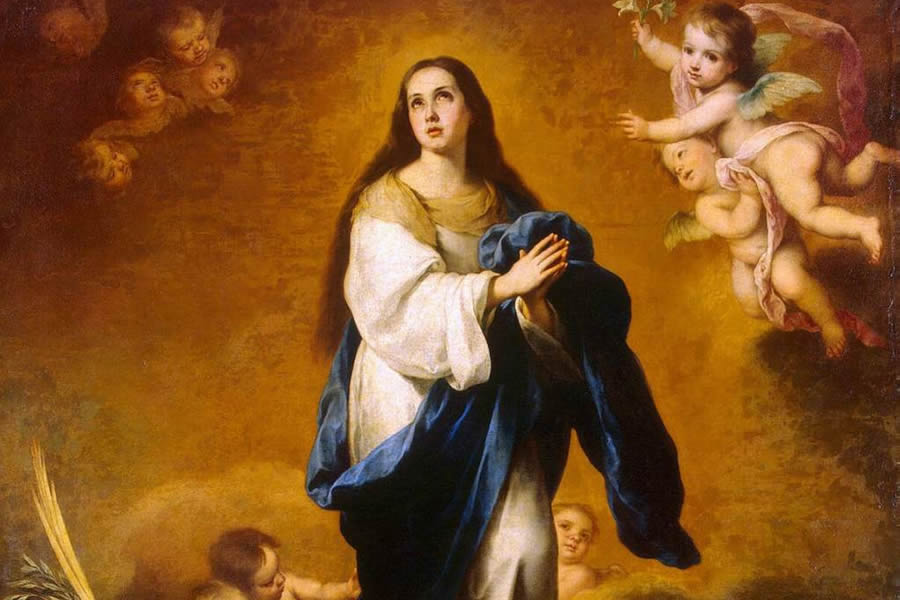
The Solemnity of the Immaculate Conception: December 9, 2019
12-08-2019Weekly ReflectionFather Prince RajaSince December 8, 2019, is the Second Sunday of Advent, the Solemnity of the Immaculate Conception of the Blessed Virgin Mary is transferred to Monday, December 9, 2019. The obligation to attend Mass, however, does NOT transfer. The Optional Memorial of Saint Juan Diego Cuauhtlatoatzin, December 9, is omitted this year. (From the USCCB)
On the 8th of December the Church celebrates the feast of the Immaculate Conception of Mary. In teaching that Mary was immaculately conceived, the Catholic Church teaches us that from the very moment of her conception, the Blessed Virgin Mary was free from all stain of original sin. This simply means that from the very beginning, Mary was in a state of grace, sharing in God's own life, and hence she was free from the sinful inclinations which have beset human nature after the fall.
READ MORE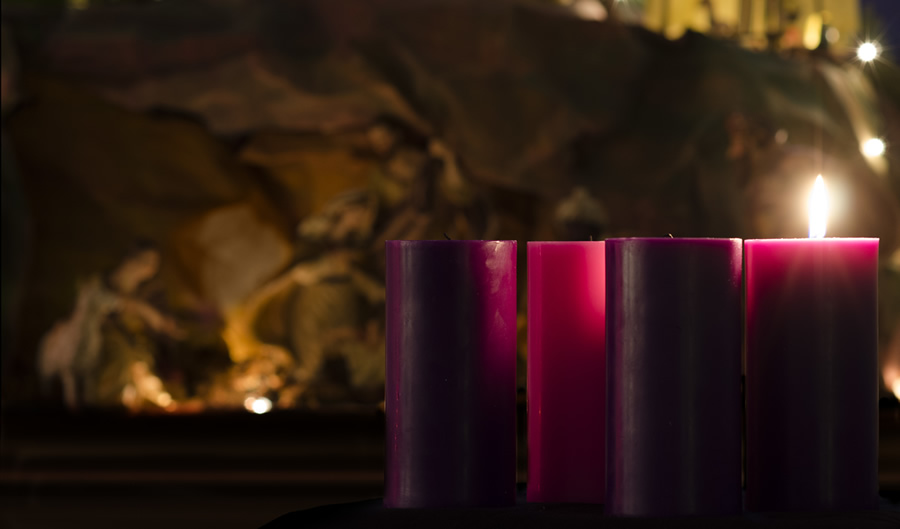
First Sunday of Advent
12-01-2019Weekly ReflectionFather Prince RajaIn our lives we encounter different types of preparation because we are waiting for someone to come or something to happen into our lives. We spend a lot of money and energy for these preparations. For example, preparing a party, a preparation for our own career or for our own wedding and for the birth of a baby. Another one is preparation for moving into another house or for building a new home or for retirement and many more. We are so very excited about these to come or to happen.
READ MORE